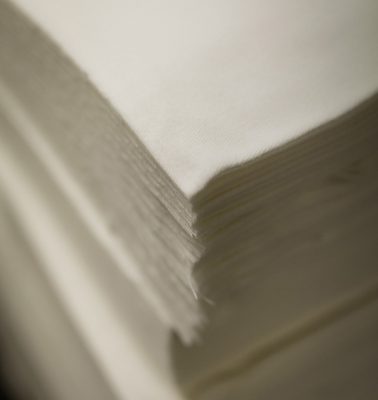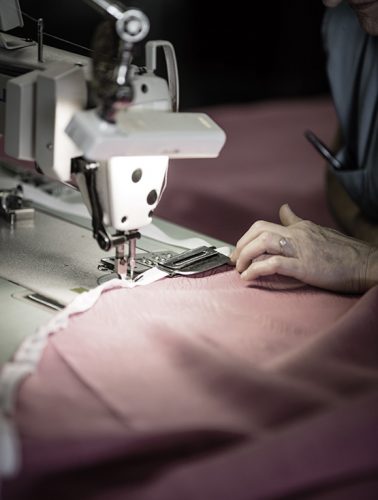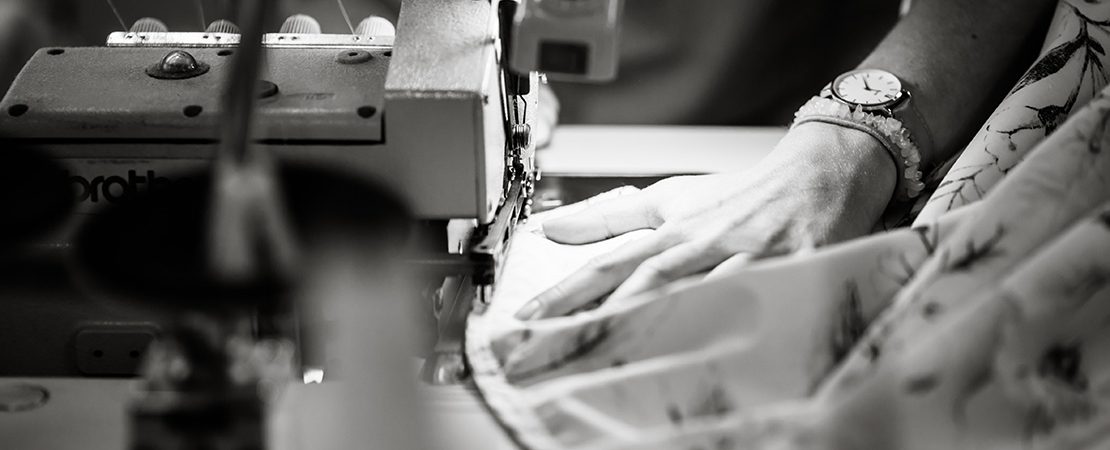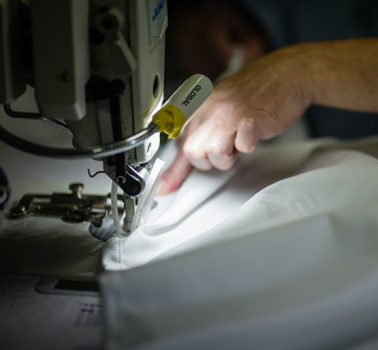Charly Couture
1998
Alexandra Faivre
Textile garment maker: a job with a future
After weaving and finishing, the last stage in the production of a bed linen set is the confection. Alexandra Faivre, manager of Charly Couture, one of France's last remaining textile workshops, believes that it is young French designers who will enable the French textile industry to survive.
Charly Couture is 15 women of all ages, busy behind their machines, scissors or reels, repeating their daily tasks. It's also a team that never forgets to honor the birthday girl or bring a bouquet from the garden to the break room... A family atmosphere, just as Alexandra Faivre, who founded and has run Charly Couture, a French textile workshop, wanted it to be.

Right after graduating, Alexandra Faivre found herself in charge of an automotive workshop. It was a temporary position that gave her a taste for responsibility and challenge. She then decided to set up her own textile workshop.

Today, a team of 15 experienced seamstresses is on hand to meet orders on time. To ensure thea dynamic and cohesive workshop, Alexandra strives to embellish the daily environment.
It provides the seamstresses with acomfortable rest room, gives each of them the listening time they need, and organizes moments of conviviality.
"Without the unity of the team, I would have closed a long time ago," she says.
At the heart of a French textile workshop
Confection is the final stage in the manufacture of a finished textile product. After finishing and printing, the rolls arrive on Charly Couture's cutting tables. Today, French confection is essentially concerned with top-of-the-range bed ensembles and luxury bed linen. lThere are also a few pieces of furniture, top-of-the-range childcare, some automotive equipment, socks and top-of-the-range underwear.
Textile regions such as the Vosges therefore specialized in home textiles, particularly high-end bed linen. An activity that has maintained the existence of a few French garment-making workshops, enough to reverse the trend towards outsourcing garment-making needs.
In Alexandra Faivre's opinion, what will keep the last remaining ateliers open are young designers who dare to offer an all-French product to customers who are increasingly well-informed and demanding about the quality and ethics of the products they buy.

Back to Fait en France:
the Vosges Textilian oxygen bubble
This return to French manufacturing, which combines the strong will of young textile designers like Julie Lavarière and a responsible consumer conscience, is a real light for these resilient members of the French textile industry.
"Over the past 19 years, I've seen virtually every workshop close down one after the other. From 15, there are now just five of us," notes Alexandra. This observation is nonetheless tinged with hope in the face of the French-made craze. "It's going slowly, but the movement is gaining momentum every year," she says.
The road to renewal seems clear!
The return to "made in France" means that existing workshops can catch their breath. "I've never thought about closing," says Alexandra.
Offering a French workshop is a real guarantee of quality. We're right up there with young textile designers like Julie Lavarière.

As far as brands are concerned, this enables them to offer their customers a privileged service. Information about French craftsmanship regularly highlights its difficulties. Customers are therefore well aware of what it means to have an item made in France, both in terms of manufacturing conditions, the standards applied, and the final cost.
A showcase that could also have a final advantage: to promote know-how, technical skills and a local, French approach, and to bring new dynamism to this sector.
"Sewing is a profession, and you have to love it. We also need to regain recognition for our know-how, and young people today need that.
Charly Couture, the definition of a French atelier!
